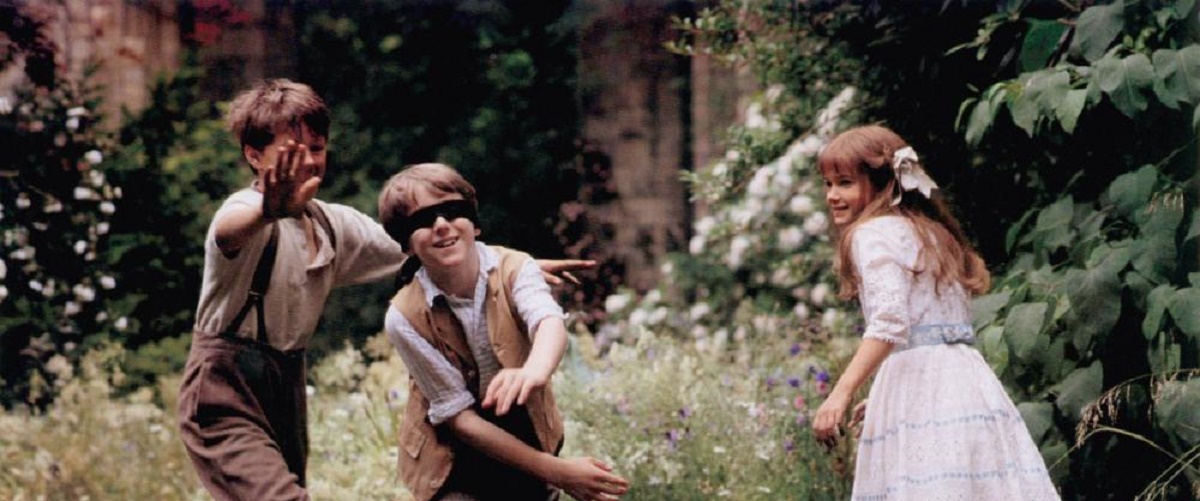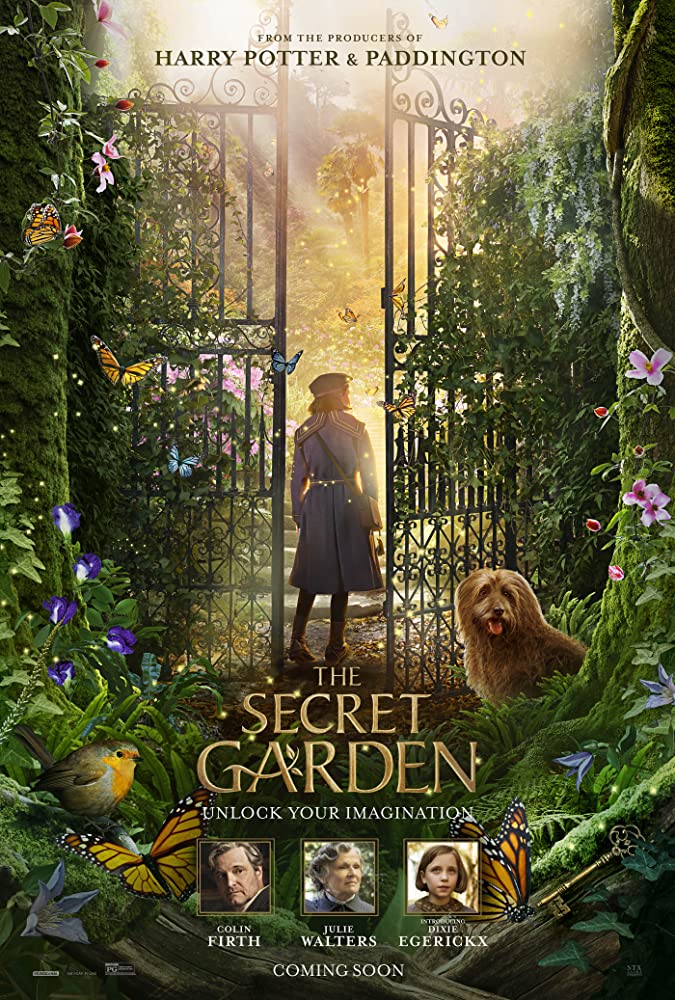Even though 27 long years have passed since its last screen adaptation, there has been no shortage of movies, plays, or TV series that honored Frances Hodgson Burnett’s classic English children’s novel “The Secret Garden,” published originally in 1911. In this context, the utmost compliment one could pay to the new version by director Marc Munden and screenwriter Jack Thorne (“The Aeronauts” and “His Dark Materials”), a slightly monotonous, but still wondrous reading of the source, is that it understands what makes Burnett’s work a worthwhile text to come back to generation after generation. Loyal to its roots like Agnieszka Holland’s respectably fanciful 1993 iteration, but entirely fresh for anyone who hasn’t yet discovered the mysteries of the titular garden or the grand Misselthwaite Manor it’s connected to, this recent “The Secret Garden” both respects and admires children’s imagination as its young characters discover their own way to grapple with loss, isolation, and loneliness.
If the timing of it all sounds a bit too eerily opportune, that’s because it actually is—stuck within the everyday of the ongoing Covid-19 crisis away from their friends, our kids in the real world have been living with doses of grim realities for months now, with no perceivable end in sight. So “The Secret Garden” might just fill a gaping hope in their lives these days, feeling like a warm, cozy supply of comfort, a two-hour sanctuary where they can process the aforesaid grown-up ideas in their own pace. There is however a flip side to that timeliness, at least for this heartbroken US-based critic. Thanks in large part to cinematographer Lol Crawley (of the sensational “The Childhood of a Leader”), Munden’s film looks so striking and cinematically majestic that one can’t help but mourn the temporary (though entirely necessary) loss of giant theater screens nowadays, where this film ultimately belongs and should have been experienced.
That is not to say that the glory of the film’s gothic mansion—intriguingly derelict, grandly wallpapered and furnished—and the beauty of the garden in question will be lost on the small screens as young ones and young-hearted adults tag along with Mary Lennox (a well-cast Dixie Egerickx of “The Little Stranger,” ably playing up Mary’s precocious snappiness). We meet her in India during a brief yet heartrending prologue. The year is 1947—among the major liberties this version takes is tweaking the original story’s Edwardian setting, bringing its timeframe closer to our era. Here, the cholera epidemic during India’s partition from Pakistan is looming large. Having lost both of her wealthy parents tragically, young Mary—a by-all-means spoiled little girl who doesn’t even know how to dress herself—gets sent to live with her reclusive uncle Archibald Craven (a welcome Colin Firth, though barely in the film) in the Yorkshire Moors, where the ghastly aftermath of the World War II is ever-present.
Mary complies, begrudgingly. Thankfully, her life in Misselthwaite Manor, which feels straight out of a Guillermo del Toro fantasy à la “Pan’s Labyrinth,” proves to be anything but mundane. For starters, there is the kindly maid Martha (Isis Davis), whom Mary befriends while fending off the strict housekeeper Mrs. Medlock (Julie Walters). Also in Mary’s growing clan is a sweet disheveled dog, her bedridden cousin Colin (Edan Hayhurst) hiding away in his room and a local boy named Dickon (Amir Wilson). And then there is of course the garden itself, which gets introduced in the story in due course with its robin redbreast, dense vines, and lush flora. A place with magical remedial powers and all kinds of colors and plants imaginable, this garden (reportedly a composite of some of the most beautiful gardens across the United Kingdom), looks different from what you might expect—instead of walls and a secluded feel, Munden’s version features an expansive look, rendering more like a vast, freeing open field than a contained and claustrophobic yard.
It is in the boundlessness of this world that Mary gets to know the members of her new squad one by one. The dynamics are complex—even the doggie infuses the tale with a significant twist—and Thorne balances out all the moving pieces carefully, with the aid of a simple yet sweet score by Dario Marianelli. Throughout the film’s compact running time that capably shuffles dark gothic interiors with bright outdoors, the trio grow individually and heal in a visceral sense with a little help from one another under the protective wing of the garden. Ultimately, “The Secret Garden,” as it always has, aims to open a gate for kids, a passage to a rejuvenating place that both validates and soothes adolescent fears too scary to handle unaccompanied. This essential version does exactly that when big minds trapped in little bodies might need it the most.




















